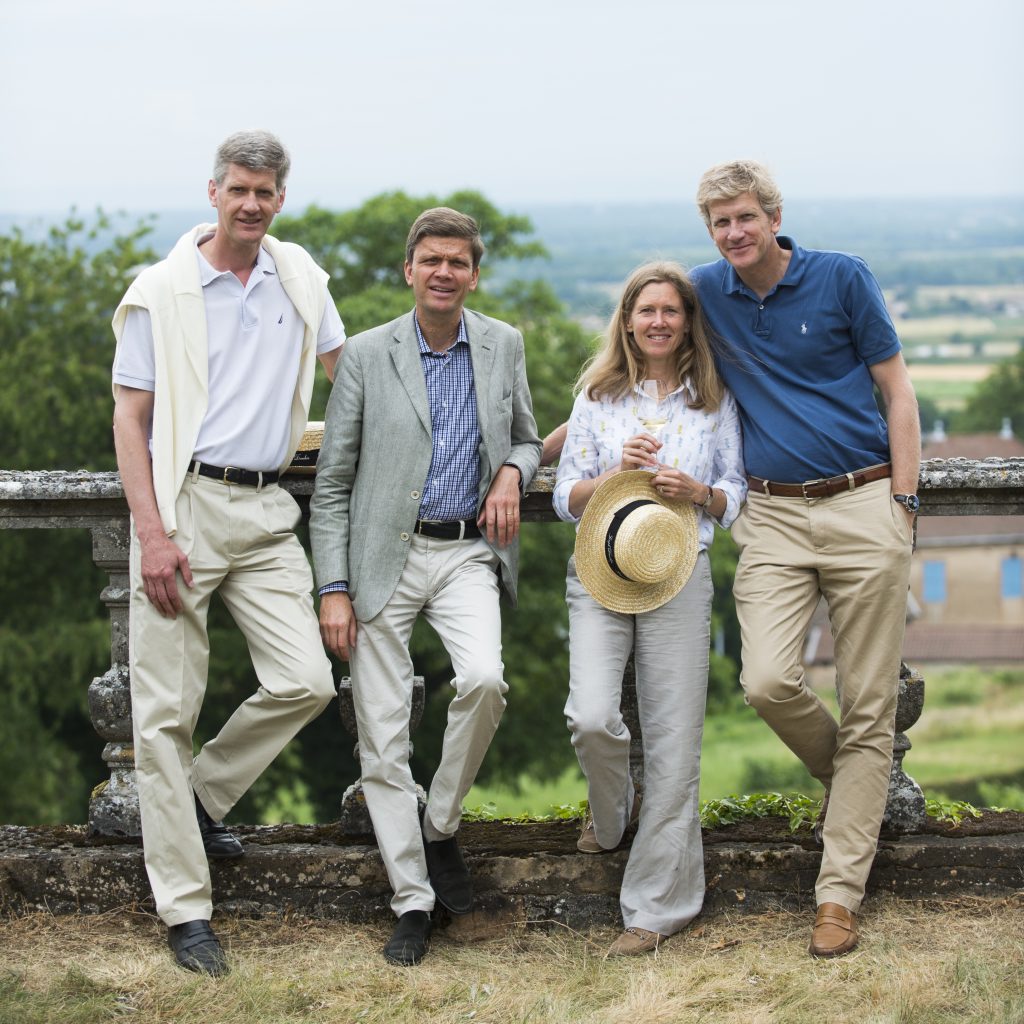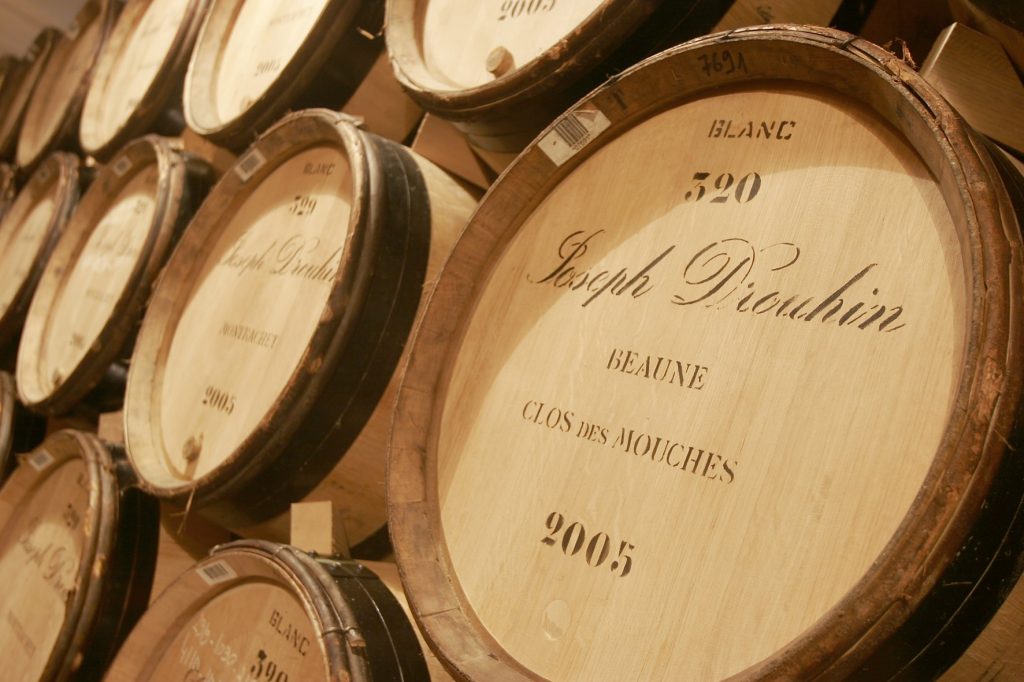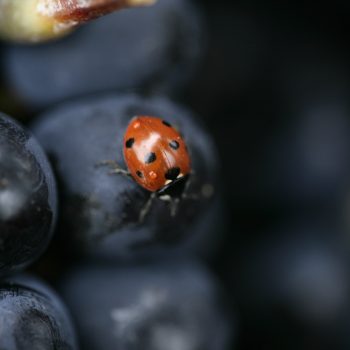This website uses cookies so that we can provide you with the best user experience possible. Cookie information is stored in your browser and performs functions such as recognising you when you return to our website and helping our team to understand which sections of the website you find most interesting and useful.
Green pioneer: Maison Drouhin celebrates 30 years of organic and biodynamic production
Famed Burgundy producer Maison Joseph Drouhin is celebrating 30 years of organic and biodynamic production. db talks to winemaker Véronique Boss-Drouhin about the journey.

For more than 140 years, Maison Joseph Drouhin has been producing some of Burgundy’s highest-calibre wines. Devoted to showing the terroir, it is now the largest biodynamic producer in the region, its estate having been fully organic and biodynamic since 1993.
Founded in 1880 by young négociant Joseph Drouhin, the famed Burgundy estate, which is represented in the UK by Pol Roger Portfolio, now farms around 100 hectares of vineyards, from the world-renowned Clos des Mouches, purchased by Joseph’s son Maurice in 1921, to its latest purchase, Château de Chasselas, in Saint-Véran in the Mâconnais.
The estate is now run by Maurice’s four grandchildren: winemaker Véronique Boss-Drouhin, company president Frédéric Drouhin, viticulturalist Philippe Drouhin and marketing ambassador Laurent Drouhin, who is based in the US.
It was, according to Boss-Drouhin, a brave move on the part of her brother Philippe to start converting the entire estate to organic production in 1988, under her father Robert – and one that was not without risk.
“It was visionary,” she explains. “Back then, it was only a handful of people who were willing to do something different, but he argued that we couldn’t always do what we were doing in terms of spraying the vines.”
It took three years to convert the estate to organic, but Philippe was eager to go beyond this, and the team has been certified as biodynamic since 1996.
The move has been hugely beneficial for the terroir, “for preserving the vineyard’s identity and for the good of the wine”, Boss-Drouhin says. “The place they were born, the sense of place is very important,” she says.
“When you farm organically and biodynamically, you have to visit the vineyards daily – it’s not just every 14 days – so you really see and feel the vineyards and have a great connection with them.” It also enables growers to be vigilant for virus and disease.
The 30 years devoted to organic and biodynamic production have wrought amazing changes in the vineyards, boosting the animal and insect life, as well as the microbiome in the soil itself. As Boss-Drouhin points out: “The biodiversity is back.
“The vines look healthier, and the time of the year that you see that the best, is when you start to grow – you can feel they are balanced,” she notes. “And, at the level of the grapes, there is a better balance in the juice. We have better acidity as there’s been a shift in the pH, yet there is no change in the alcohol level.”
Biodynamic farming also allows greater freedom during the winemaking, she points out. For example, the team can play with whole clusters, which would not be advisable in conventional farming due to potential chemical residues. The wines are also kept on the lees longer to add greater complexity while keeping their freshness.
But Boss-Drouhin attributes the wine’s finesse, complexity and “super-long finish” primarily to the terroir. “You can’t build that; it comes from the vineyard – you can screw it up, but you can’t make it happen if it doesn’t have it,” she says.

The team already use cover crops, but are currently experimenting with canopy management to create shade from one row to another, to prevent the grapes from getting sunburnt or over-exposed during increasingly hot summers.
Phillippe is also leaving certain rows in the vineyard unploughed, an experiment that aims to both boost the oxygen in the soil and minimise erosion. Soil erosion largely rests on rainfall patterns and human disturbances due to tillage, trampling during the harvest and heavy machinery compacting the soil. By removing some of these factors, the rain can seep through to the roots of the vine, rather than remaining on the surface and washing away the top layers of soil.
“If you lose one centimetre of soil through erosion, that amounts to 134 tonnes per hectare,” Boss-Drouhin says. “That’s a huge amount – and how long does it take for that to come back? Probably decades.”
The experiment appears to be working, and you can both see and feel the difference between rows that are left untilled and those that aren’t, she says.
Philippe’s team is also working on a programme of replanting some of the vineyards to ensure productivity in years to come.
“We’ve been lucky to work with old vines, but we really need to make sure that we continue to replant,” Boss-Drouhin explains.
While her father’s generation was selecting earlier bud-breaking vines to allow a longer ripening period, the current generation chooses clones that bud-break later, as climate change has brought greater danger of spring frosts.
“There is no issue with picking later – but there is with frost,” she notes. “In 2021, hardly any wines were made and, although 2022 was very scary, it was ok in the end.”
These kinds of events make it clear that inaction isn’t an option. “General [Douglas] MacArthur said the reason you lose a battle is two words: ‘Too late,’” she explains. “You can’t wait; you have to help, even on a small level. So we try to think ahead and think: ‘What do we need to do?’”

Replanting programme
The company recently became the first wine business in the Franche-Comté region to join the Convention des Entreprises pour le Climat (CEC) – a business climate convention that exists to help companies across a wide spectrum of industries to shift from an “extractive” to a more regenerative economy before 2030 through the sharing of ideas.
But Maison Joseph Drouhin’s ambition doesn’t stop there. Having been at the forefront of organic and biodynamic production in the region for 30 years, it is using the team’s expertise to foster these practices locally too. For example, it incentivises long-term growing partners to convert to organic or biodynamic production by not only paying more for the grapes – as Boss-Drouhin notes, it costs on average around 20% more to farm grapes organically or biodynamically due to the increase in labour costs – but also by sharing its experience.
“Philippe is passionate about biodynamics, and is really willing to help people who want to do that transition,” she says.
And, while she concludes that it may not be possible to change things overnight, the exceptional wines of Maison Joseph Drouhin have certainly proved what can be achieved in the long haul.

